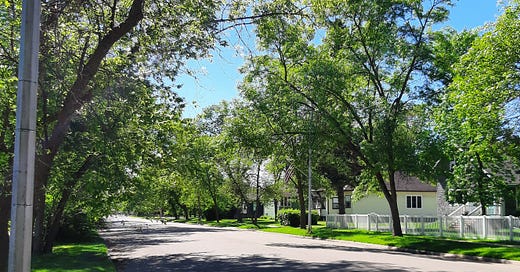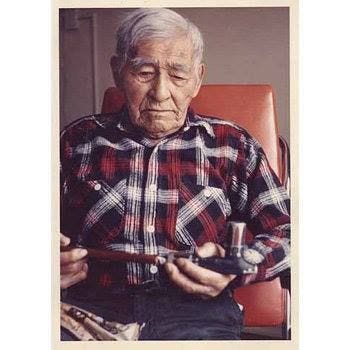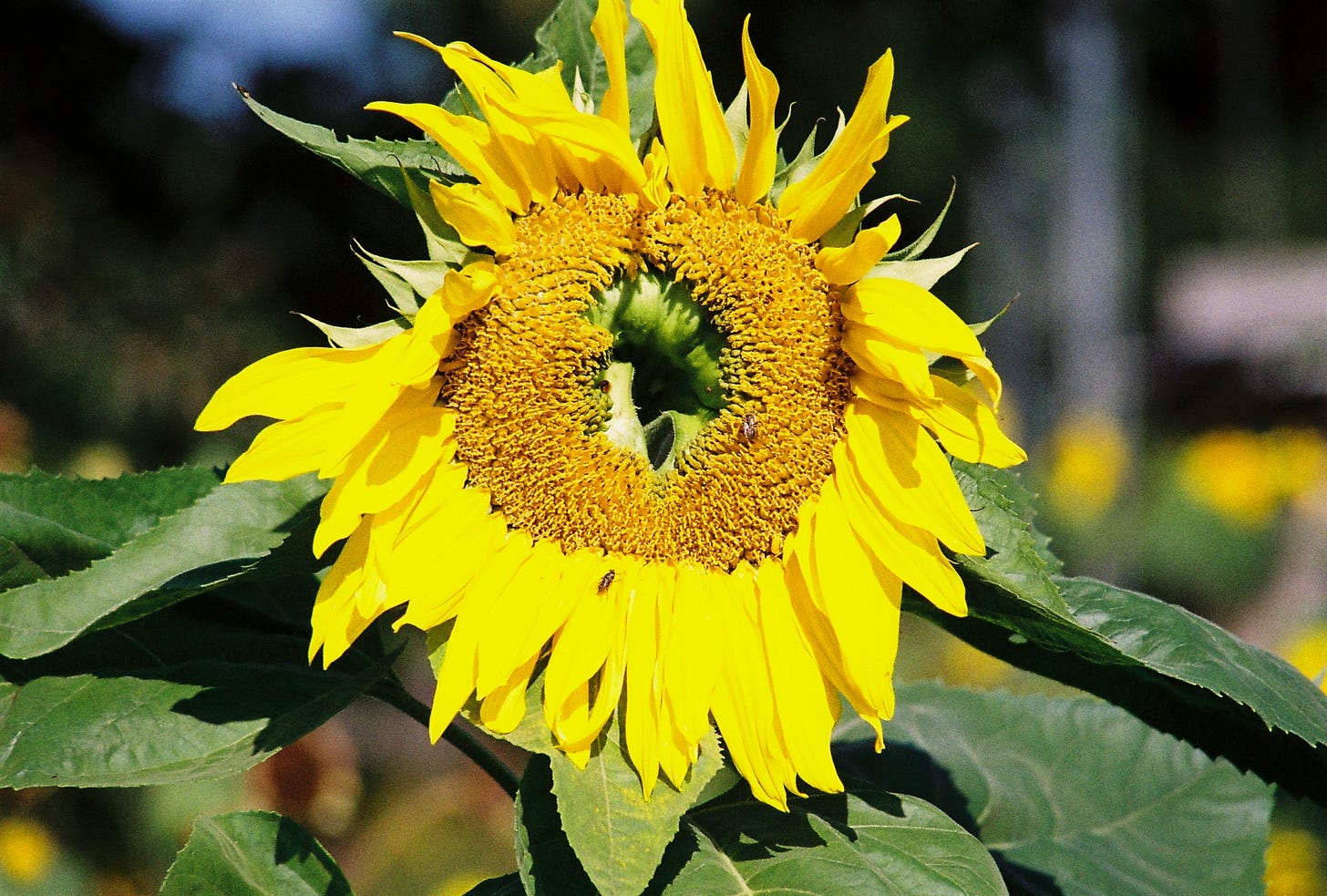When I started this newsletter last September, current events magnified the relevance of Warroad’s social and cultural history. RiverPlace Arts Center opens next month on the parcel of land that had originally been purchased by the school board in 1905 for $150 from Naymaypoke. Minnesota granted an exemption to the state ban on Native mascots for public school athletic teams for the Warroad Warriors. Twin Cities PBS produced a new documentary about Ojibway Olympian and local hockey legend, Henry Boucha.
When Aunt Audrey died this June, a flood of memories made the past seem even more immediate to me.
Whenever I sat at Aunt Audrey’s kitchen counter, I loved to read the smalltown weekly newspaper which featured a regular column about what had happened in Warroad 100 years ago. Imagining a far away time in the same place must have snapped something in my kid-brain into place. I grew up to be a news junkie and a history geek. When I returned to Warroad in 2014 after Mom’s funeral, it pleased me to find the newspaper still ran this weekly feature.
The Warroad Pioneer stopped publishing in 2019 after 121 years. The New York Times reported its closure as evidence of the disappearance of small town newspapers:
No hometown paper to print the obituaries from the Helgeson Funeral Home. No place to chronicle the exploits of the beloved high school hockey teams. No historical record for the little town museum, which had carefully kept the newspaper in boxes going back to 1897.
A local newspaper is the repository of its community memory. I came to appreciate this in the last ten years while researching what life was like in the first part of the twentieth century for my maternal great-grandparents, Charlie and Ellen Kling. They staked a homestead claim in 1903, east of Warroad on ceded Red Lake Reservation land.
During my research in the archives I also learned a lot about the history of the Kakaygeesick family, original residents of Kah-bay-kah-nong, the Ojibway village known as Warroad.
I met Kakaygeesick when I was 10 years old. When I returned to Warroad in 2014, I met his great-grandson, Don, born the year after me.
I’ve spent the past decade learning about our family histories and connections to the land and lake.
Before I started writing here last September, I wrote a manuscript for a book which braids together my story with Don’s in relation to land, grief, and the family history we inherit. An excerpt appeared this spring in Thunderbird Review.
Because of what I learned about our two families, I decided to broaden my research scope to the entire community to which the Kling and Kakaygeesick families belong.
I am humbled by how much more I have learned this year and how much more there is to learn.
In conversation with Aunt Audrey days before she died, she told me stories about my grandparents I had never heard before. I miss my auntie.
Grief, I confess, has been my greatest teacher. It pulls the past into the present.
September for me is always filled with bittersweet memories. It has been 15 years since Sam Warren, the love of my life, died on September 15, 2009.
Fifteen years is longer than we lived together off-the-grid on 40 acres in upstate New York. Sam raised goats, deer, elk, and bison and I grew produce sold at farmers markets. In 2002, I left Ithaca College where I had been a tenured journalism professor to embrace a more sustainable lifestyle working as a freelance writer and editor while farming full-time.
Sam’s death was a defining moment, but one moment doesn’t define me. Grief has taught me the past is always here. I can’t ignore it, no matter how painful, shameful or tragic.
Time doesn’t heal. It lends perspective. Turning toward — instead of away — from grief has been a path to grace.
Thanks for your time spent reading. Thank you for the generous and kind comments. Deep gratitude to those who have chosen to support my efforts with a paid subscription. And thanks to those who have shared my work with others as this community of readers continues to grow.
I look forward to another year of writing about this place to which my fierce attachment grows.







"Grief, I confess, has been my greatest teacher. It pulls the past into the present." Love this, and your reminder that we learn to live with grief, not recover from it. Louise Erdrich said that exact thing in her latest New Yorker Fiction Podcast appearance.
Thank you for sharing more about your personal attachment to this place, and to your ongoing search.
“Time doesn’t heal. It lends perspective. Turning toward — instead of away — from grief has been a path to grace.” A thousand times yes. May the year ahead be fruitful for you and your message.